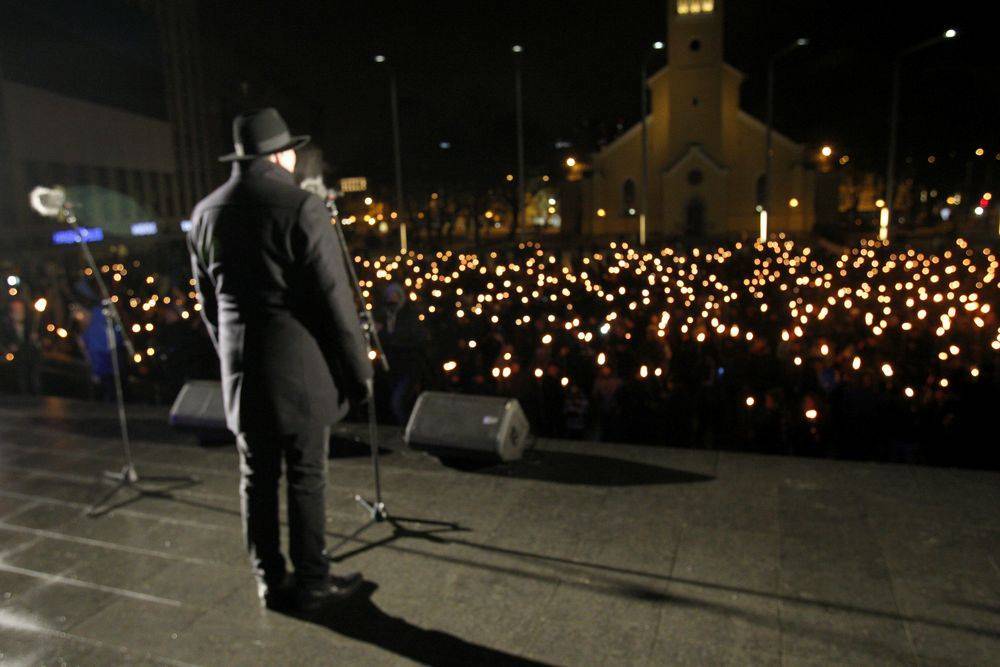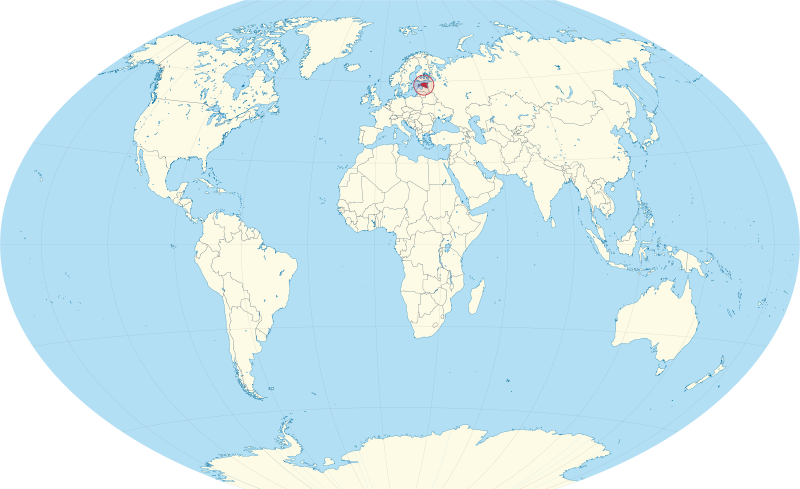Kristina Kallas, the chairwoman of Estonia 200, a new political party aiming to get elected to the Estonian parliament on 3 March 2019, writes that, contrary to what some political forces preach, Estonia’s independence is guaranteed by its membership in the EU and NATO, and fearmongering will lead to a broken society.
With the upcoming election, Estonia is on the brink of having to answer the same fundamental question that many European countries face today – whether to move forward with open and international policies or to make an about-face and move towards a protectionist mindset. In recent weeks, a confrontation has emerged, where some political forces are trying to convince us that international cooperation puts the preservation of our independence in jeopardy. It is as if we are now to choose whether to co-operate with the United Nations or to have Estonia remain independent, whether we belong to the European Union or a sovereign Estonia.
Three decades ago, we fought fiercely for both our sovereignty and independence, and today, some are trying to convince us that the partners with whose help we fought this fight are a threat to our independence. Yet the global situation does not differ from the early 1990ies, when the then-foreign minister, Lennart Meri, ran himself ragged to get Estonia both international recognition and membership in all kinds of international organisations.
Options for remaining Estonian
In the coming decades, Estonia’s independence guarantee continues to be our membership in the European Union and NATO. Never in history has Estonia’s independence stood on as strong a foundation as it does today. The withdrawal of Estonia from international cooperation and the joint resolution of global problems would result in a weakening of our independence and our voice internationally. Applying conditions to allied relations will lead us, in the long run, to finding ourselves alone in times of crisis.
The enduring Republic of Estonia in 100 years from now does not depend on whether we participate in the Global Compact for Migration as a state or not, whether we create a military-patrolled border guard or whether we close ourselves off from any international influence. We will persevere if, as a people, we are able to make very smart decisions right now, to be strong in the global world as Estonians, namely Estonians.
We will survive if we are happy, confident and believe in ourselves. That is how we will succeed globally, and that is how we will grow. Children are born into happy and confident societies, not those that are full of fear and uncertainty.
Let us be honest, we have had the opportunity to be a nation state for a very short time, but as a people, we have existed for thousands of years. Estonians have all the qualities necessary to build a vibrant, cultured society of their own with a strong economy and to be successful internationally as Estonians.
The current challenge is the same as that of the leaders of the 19th century Estonian – how to become European (currently citizens of the world), while remaining Estonian. Do we know how to exist and grow as Estonians in the 21st century, in a world of growing global peoples’ migration, which is economically interdependent and becoming increasingly English-speaking and English-cultured? As a people, we seem to have a gene for survival, so let’s use it wisely.
“We will survive if we are happy, confident and believe in ourselves. That is how we will succeed globally, and that is how we will grow. Children are born into happy and confident societies, not those that are full of fear and uncertainty.”
But we see something else. The debate has become very intense and peoples’ fear regarding everything coming from abroad has been increasingly cultivated. Some forces want to convince us more and more that everything coming from beyond the country’s borders is dangerous for Estonians. What is cause for concern is what state Estonian society is going to be led into before making their voting choices on 3 March (the next parliamentary election will be held in Estonia on 3 March 2019 – editor).
For those of us, who together, three decades ago, fought for personal freedoms and democratic governance and wanted to become Europeans; there is now an attempt to convince us that you can stand for national interests only by shaking a fist at everyone, and those who don’t act in the same way, are traitors of the state or silently agree with them.
The destruction of public space
A backdrop of hatred and fear in society is emerging, where soon people will not have the courage to speak out, since it will result in an avalanche of threats from the troll factory or being labelled a traitor of the state. Personal attacks, which have been skilfully directed, break people who are active in society. When people are broken, society is broken. Metaphors which justify violence have penetrated Estonian political culture, such as “off with their heads”, someone must end up “in the gallows” or “provocateurs will be held accountable”.
What is curious is that the political culture of using violence as a weapon, considered normal in some Islamic countries, has been brought to Estonia by a party claiming to fight against the Islamisation of Europe (the author refers to the Conservative People’s Party of Estonia, known in Estonia simply as EKRE – editor).
We understand, of course, that no open democratic discussion can take place, or plurality of opinions can come out in such an atmosphere. In an atmosphere such as this, the result is in fact that much of society that is less vocal, is becoming silent. In Hungary and Poland, the less vocal part of the society became silent as well, debates about the future vanished and what was left was emotional noise.
The opinions in this article are those of the author. Cover: Mart Helme, the chairman of the far-right Conservative People’s Party of Estonia, giving speech at the torchlight procession organised by the party on 24 February 2018 (the image is illustrative).


